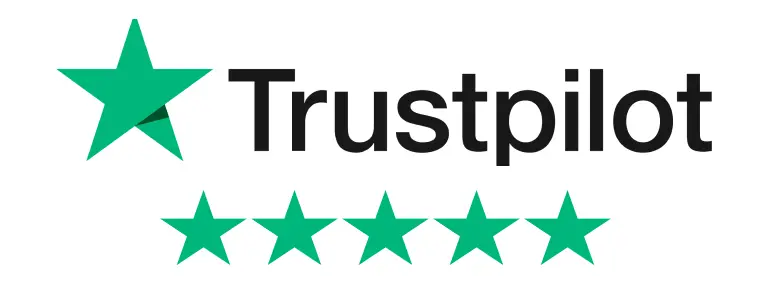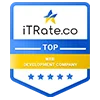
The founder of Laravel is Taylor create a free, open-source PHP web framework based on Symfony. It is designed for the production of online applications that follow the model–view–controller iterative technique.
Laravel security monitoring aims to make development easier by simplifying typical chores seen in most online applications, such as authentication, navigation, sessions, and caching.
Laravel security checklist is simple to use while still giving powerful capabilities for building huge, sophisticated applications.
A superior inversion of control container, flexible migration framework, and deeply integrated unit testing support provide you the tools you need to construct an application with that you are assigned.
Quick Navigation
Why Laravel security is important?
Laravel security testing is critical for controlling hackers and cyber thieves from gaining access to critical data. Companies that do not have a proactive security policy risk malware spreading and escalating, as well as cyberattacks on other websites, networks, and IT infrastructures. If a hacker wins, the assault might expand from machine to computer, making it impossible to track down the source.
8 Features that prove Laravel offers the best security features
Efficient and Innovative Application Testing
Developers produce valuable apps using correct test techniques and methods. The PHP component enables developers to write and run unit tests on their applications to ensure that they are functional. With automated testing, the program can fix bugs in user applications and various kinds of projects. Performing a feasibility study for test automation, picking applicable tools, analyzing applicable systems, producing a proof of concept, and eventually designing and implementing test scripts are all part of the automation testing process. The tests run on the application enable regression discovery and prevention. Unit testing and command-line utility testing are two of the tests.
Defending against SQL injection
SQL injection is a type of web security flaw that enables hackers to interfere with a web application's database queries. It allows an attacker to view data that they wouldn't normally have access to. This could include data from other users as well as any other info the application has reference to. An attacker can often modify or destroy this data, affecting the application's information or behavior to change permanently. An attacker can use a Cyberattack to corrupt the underlying server or other back-end technology or to launch a denial-of-service attack in some cases.
To eliminate SQL injection, Laravel's Eloquent ORM employs PDO parameter binding. Malicious users can't even pass in query data that changes the query's intent because of parameter binding. Imagine a form field that collects an email address and can then be used to explore a user database.
Cross-site Request Forgery (CSRF)
A Cross-Site Request Forgery (CSRF) threat is one in which an end-user is forced to perform undesirable operations on a web application when they are currently authorized. Because the offender has no method of seeing the response to the falsified request, CSRF attacks target state-changing queries rather than data stealing. An attacker can deceive users of a web application into performing actions of the attacker's choosing using social engineering techniques (such as delivering a link via email or chat). If the subject is a regular user, an effective CSRF assault can force them to make state-changing operations, such as sending money or altering their email address. CSRF can compromise the whole web application if the subject is an administrative account.
Laravel has implemented a traditional authentication token called Laravel CSRF token to assist safeguard data privacy from Cross-Site Request Forgery (CSRF) threats. Its sole objective is to authenticate and approve user sessions. It assures that requests and approvals for specific resources/programs are only granted to authenticated individuals with confirmed tokens. If the Laravel CSRF token does not match the one stored in Laravel's session, access to the resource sought by that token is instantly denied.
Laravel Authentication
The purpose of selecting a user's credentials is known as authentication. Laravel Authentication in online applications is handled using sessions, which use settings like email or id and password to identify users. The visitor is said to be authorized if these criteria match.
Cross-site Scripting (XSS)
In XSS attacks, cybercriminals corrupt your site's or app's JavaScript, causing the malware to be performed each time a visitor visits the affected page, causing damage. As a result, XSS protection must be implemented. Fortunately, the Laravel-based management system framework has native Laravel security measures that will safeguard your site and app against XSS assaults. The system runs on its own and is the most effective technique to safeguard your database.
If your app exchanges private information, enable HTTPS
When you launch your website over HTTP, all data, especially accounts and other sensitive information, is transferred in plain text. As a result, anyone in the transmission path might readily steal it. To protect this data, always deploy your web applications over HTTPS to protect sensitive data.
You may quickly install an SSL certificate on your website with the help of a Laravel security vulnerability expert who can easily convert your app from HTTP to HTTPS.
Laravel's encryption method
Laravel's encryption facilities provide an easy, intuitive user interface for encrypting and decrypting data with AES-256 and AES-128 encryption using OpenSSL. Laravel's encrypted elements are all verified with a message authentication code (MAC) to ensure that the underlying value can't be changed or interfered with once they've been encrypted.
Cookie Security in Laravel Applications
Your cookies will also be protected by the Laravel security component. You'll need to create a new Application Key for this. Use the PHP artisan command if this is a new project.
To produce secure encrypted strings and hashes, the Application Key or Encryption Key employs encryption and cookie classes. This key must be kept private at all times and therefore should not be discussed with anybody. Also, make it around 32 characters of nonsense so that no one can predict it when Laravel validates the cookie. The Application key is used by the cookie class to produce secure encrypted strings and hashes. Laravel security packages will secure your cookies by encrypting them with a hash and ensuring that no one tampers with them.
Conclusion
Encryption, Route Protection, Password Reminder & Reset, User Authentication, HTTP Authentication, Password Storage, Manually Logging in Users, and ultimately verifying the Authentication Drivers are all security features provided by Laravel. You can also hire a Laravel development company for your app development.















